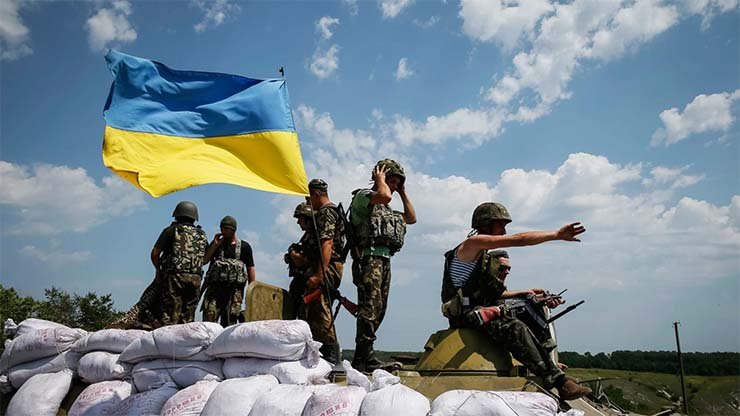
Tel Aviv: Israel has to re-evaluate its policy concerning military aid to Ukraine. This is the growing understanding among Israeli defence experts. The political, economic, and security relations between Moscow and Tehran have tightened in recent months, and the bilateral ties are expected to deepen even further.
According to a research published in the website of the Israeli Institute for National Security Studies (INSS), Russian dependence on Iran has deepened over the past few months, reflected in a variety of developments in security, foreign policy, and economic realms, in which Moscow increased its support for Iranian interests.
“Tightened relations, and especially Iranian assistance to Russia in the framework of Moscow’s campaign in Ukraine, indicate that the cooperation between the two countries is not just tactical; rather, it reflects a strategic decision by both sides. This development not only directly impacts Iranian force build-up and increases the potential threat that Tehran poses to Israel; it may also lead to Russian attempts to limit Israeli freedom of action in Syria. Israel must therefore rethink its relationship with Moscow,” writes Danny Citrinowiicz, a research fellow in the Iran program of the institute.
According to the researcher, over the past few months, strategic ties between Russia and Iran have continued to deepen, primarily though the massive assistance Iran has given Russia in its campaign in Ukraine. This assistance is manifested in the dispatch of Iranian UAVs to Russia, after adapting them to Russian war needs; there is even a plan underway to build a drone factory in Russia able to manufacture at least 6,000 drones of various models in the coming years. In addition, it appears that Iran began to send Russia massive quantities of mortars (300,000), shells (around one million), and a variety of weapons; it is also possible that Iran will supply Russia with its locally manufactured ballistic missiles.
“Alongside Iran’s continued assistance to Russia, in the past few weeks Moscow has increased its own military aid to Iran, as part of the deepening bilateral ties. In this context it was reported that Iran purchased Sukhoi SU-35 fighter planes from Russia, and that the first three planes have already arrived in Iran. The report states that Iran is preparing an underground base ahead of the arrival of the planes and that they represent the “payment” for the drones supplied to Russia,” according to the published research.
The researcher says that the close ties between Iran and Russia will likely deepen the challenge Israel faces relating to freedom of action in Syria. In the past, it appeared that it was convenient for Russia that Israel attacked the Iranian presence in Syria, so long as Russian soldiers and interests were not harmed.
“Today this is not the case. In spite of the Israeli desire to refrain from steps that “challenge” Russia, the rapprochement between Russia and Iran is likely to harm Israel’s security coordination with Russia in Syria, which allows Israel’s continued “campaign between the wars” activity. That is, in spite of extreme Israeli caution regarding Russia, especially in the Ukrainian context, it seems that Russia’s military convergence with Iran has substantially improved Moscow’s capabilities in a variety of areas, and may lend it a “free hand” for action in Syria,” writes Danny Citrinowiicz.
“Israel must reassess the elements of its ties with Moscow, with an emphasis on Israeli arms exports to Ukraine. Russian conduct proves that whether Israel exports arms to Ukraine or not, Moscow will not change its policy on Iran,” the researcher emphasises.
While there are louder voices in favour of an Israeli change of policy that will allow the sale of advanced weapon systems to Ukraine, there are other more cautious assessments.
Dr Shay Har-Zvi, senior fellow in the Institute for Policy and Strategy, Reichman University in Tel Aviv and former acting Director General, Ministry of Strategic Affairs told Raksha Anirveda that while Israel should express a “loud and clear ” concern from the new relations between Russia and Iran, Jerusalem should continue to present a very cautions policy towards the issue of supplying arms to Ukraine.
“First , while the war in Gaza and Lebanon continues, Israel needs all military hardware for its operations. After the war ends, Jerusalem will have to make a full across the board re-evaluation of its relations with Ukraine,” said Dr Har-Zvi.
The senior analyst added that while Israel will make this re-evaluation, some other factors will have to be on the table like the issue of the control Israel will have on the technologies incorporated in the weapon systems that may be transferred to Ukraine.















